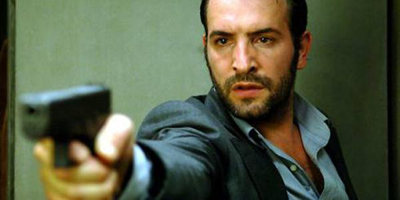
It’s probably unfair to compare director Cédric Jimenez’s routine cops-vs.-druglords saga The Connection to William Friedkin’s Oscar-winning classic The French Connection, but it’s almost impossible to avoid — and not just because they share half of a title.
Both are based on the true story of how law enforcement agencies on each side of the Atlantic exposed, and temporarily disabled, a narcotics pipeline that flowed from Europe to America. But while The French Connection is a tightly contained, relatively small-scale story — as much about the vibe of a crumbling late 1960s New York City as it is about crime-fighting — The Connection is less atmospheric and more sprawling, stretching across the better part of a decade, and across France.
The film mostly takes place in the port city of Marseilles, where magistrate Pierre Michel (played by The Artist’s Jean Dujardin) heads a task force targeting the key players in the heroin trade. Michel frequently bumps up against profligate local businessman Gaetan Zampa (Gilles Lellouche), who lives like a kingpin but keeps eluding prosecution, even as he sees his own fortunes dwindle due to an ill-advised investment in a swank nightclub. A lot happens in The Connection — some meant to give the audience a fuller understanding of how European drug smugglers used hidden factories and arcane banking to run a massive import-export business “that Dannon would envy,” some there just for cheap pulp thrills.
All of it feels too loosely organized. The Connection has a “this happened, and then a few months later this other thing happened” quality, with very little sense of why all the various plot threads and setpieces matter. Jimenez also relies a lot on old policier clichés: the brutal boss torturing the wayward underling, cops planting evidence on cocky suspects, long-suffering spouses who wish their husbands were home more often, and so on.
The movie’s strength is in its conception of Michel and Zampa, who develop a destructive rivalry, rooted in their mutual determination to prove their superiority. Just as The French Connection had the scarily driven Popeye Doyle, The Connection has two men who operate outside the law and outside the culture, perpetually waging the same war even after society and politics have changed. If the American version of this story was about a single place and time, the French one is about what happens to a couple of fierce adversaries after their era ends. As the title implies, they remain bound to each other, slowly sinking together.





